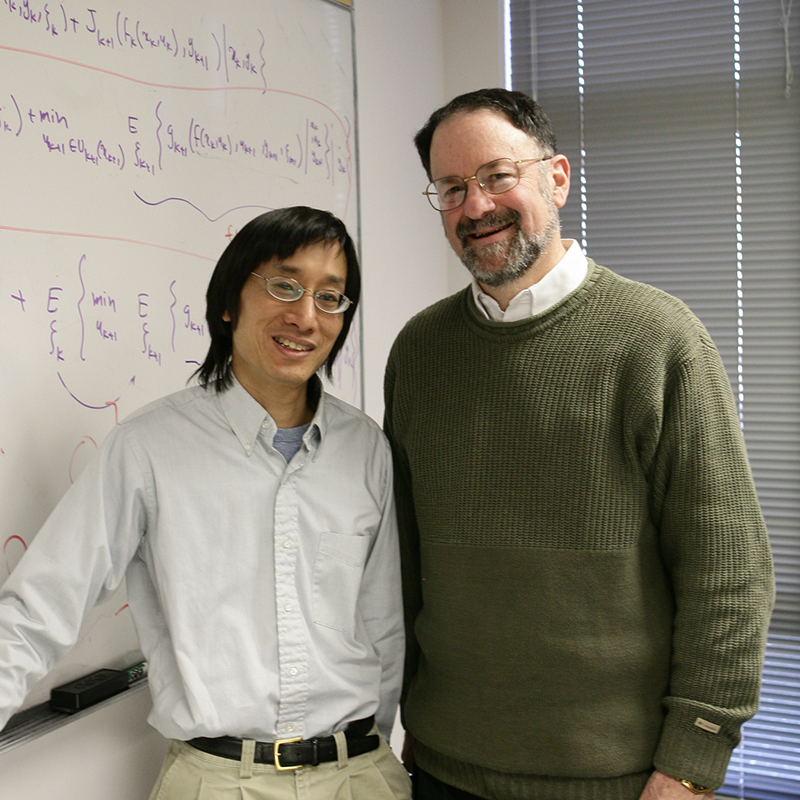Fu, Marcus team for new AFOSR project on simulation optimization
Professor Michael Fu (BMGT/ISR) is the principal investigator and Professor Steve Marcus (ECE/ISR) is the co-PI for a new three-year, $871,982 Air Force Office of Scientific Research (AFOSR) project, “Simulation Optimization: New Approaches to Gradient-based Search and Maximum Likelihood Estimation.” Simulation is a commonly used modeling and analysis tool with both military and civilian uses. Simulation optimization aims to guide planning and decision making under uncertainty in complex dynamic settings. It is useful in tasks such as unmanned aerial vehicle path planning, supply chain management, risk management, and various neuroscience applications. This research project will address two overlapping simulation optimization settings. In the first setting, simulation is required to estimate performance of a complex underlying system, where direct gradient estimates are available, such as simulation models of large queueing networks. The goal of this research is to develop new computationally efficient algorithms with provable convergence guarantees and to provide practical guidelines for how best to combine the gradient estimates with the performance estimates. Applications include path planning for unmanned aerial vehicles, as well as practical problems arising in supply chain management and risk management/mitigation. One of the proposed approaches will incorporate more efficient regressions models in carrying out the optimization search. Preliminary numerical experiments have demonstrated promise of efficiency and effectiveness in developing new algorithms based on this approach. The second setting addresses maximum likelihood estimation (MLE) problems for estimating underlying system input parameters, where either the likelihood function is not available explicitly and/or it is very likely to be non-convex, requiring simulation-based global optimization algorithms. An example of the former would again be large queueing networks where only a simulation model is available, whereas many problems falling into the latter situation arise naturally in statistical applications such as in neuroscience. One motivating example arises from a previous research project sponsored by DARPA, “An Optimization-based Approach to Breaking the Neural Code,” which ran from March 2018–September 2019 with PI Steve Marcus (ECE/ISR), co-PIs Behtash Babadi (ECE/ISR), Michael Fu (BMGT/ISR) and Jonathan Simon (ECE/Biology/ISR). This project studied the dynamics and statistical characteristics of brain activity based on measurement data from magnetoencephalography (MEG) and electroencelphalography (EEG). One potential application of the research would be to monitor pilots in simulation training, and perhaps ultimately in actual combat or reconnaissance flights.
Related Articles: September 14, 2020 Prev Next |


